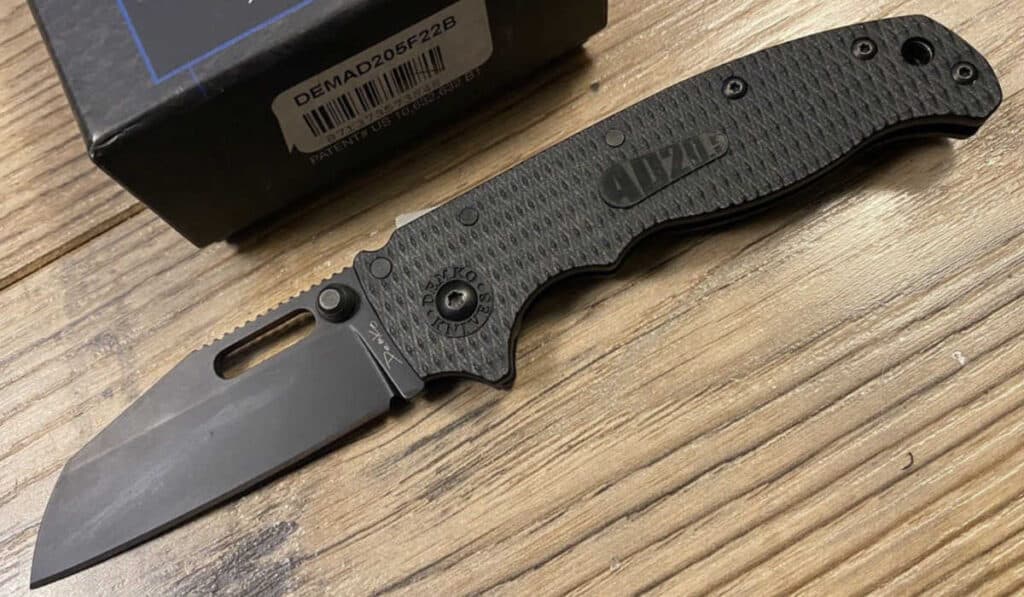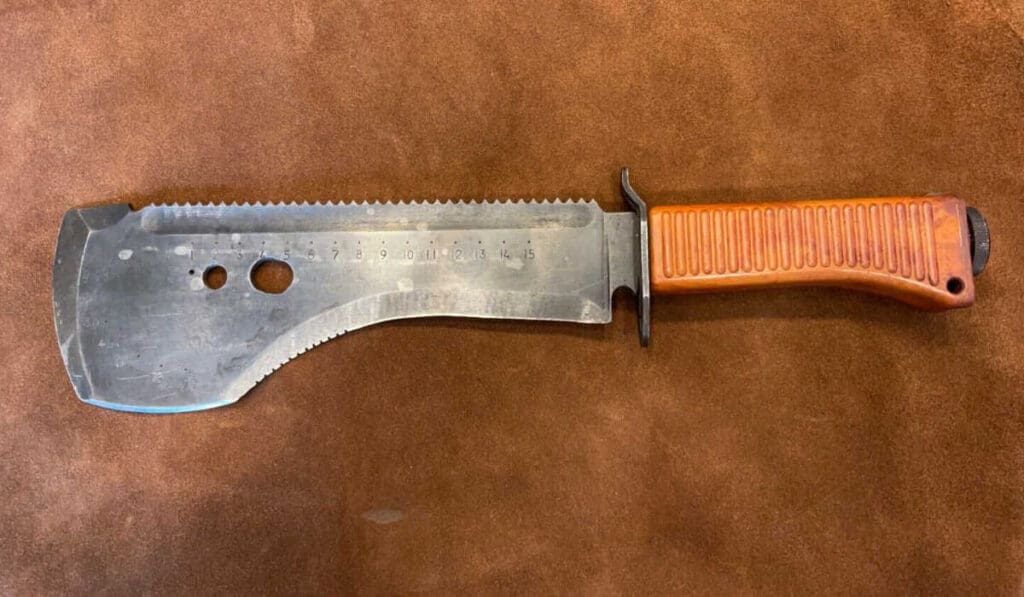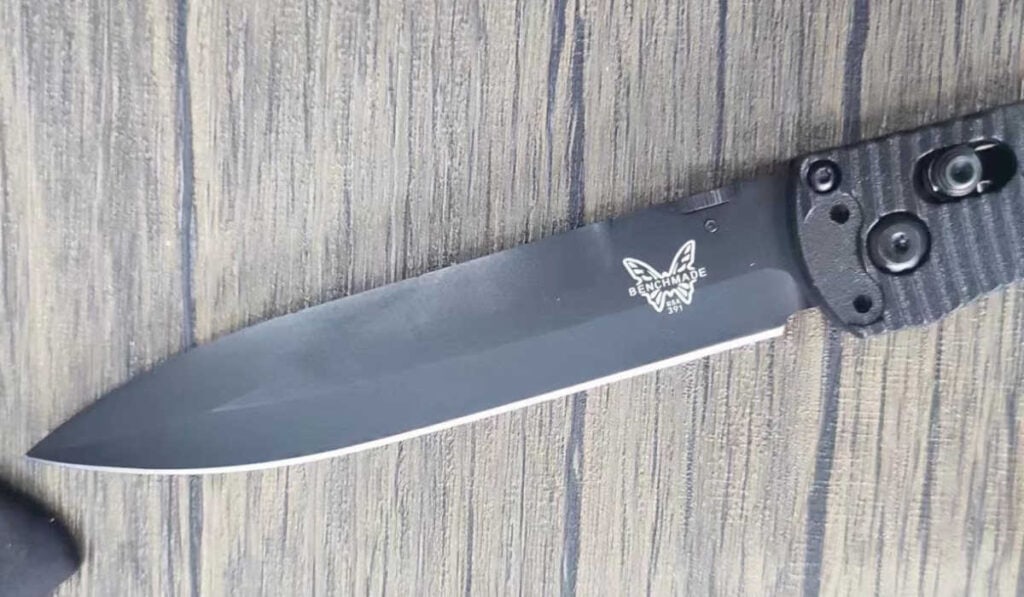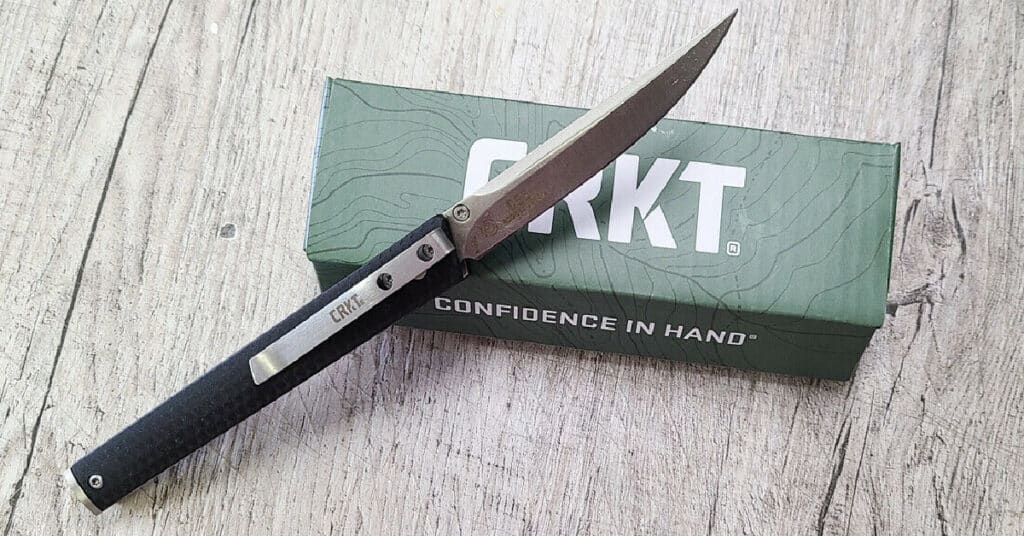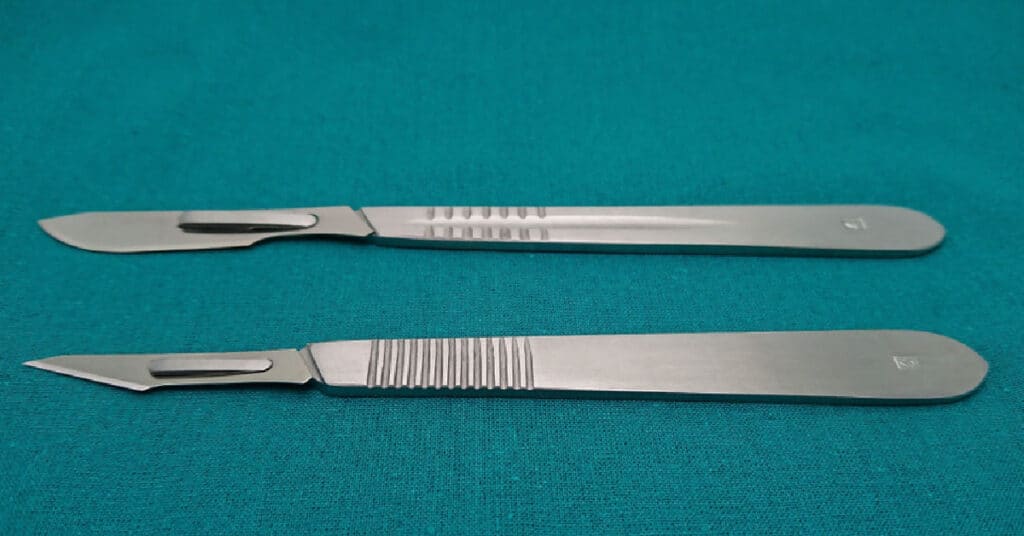Last updated on October 21st, 2023 at 10:35 pm
As an Amazon Associate I earn from qualifying purchases.
The state of Virginia has a nuanced set of laws regarding knife possession and carrying in public.
Understanding what is legal and what isn’t in terms of knives can be tricky, so we have created this guide to help you grasp the specifics of Virginia knife law.
Here you will find a digest of relevant regulations as well as insights into any possible penalties for violations. You’ll also delve into local preemption laws related to knives and potential defenses against charges involving them.
This comprehensive guide covers everything you need to know about Virginia knife law – from public carrying, minors’ possession rights, to resources for further information on these vital topics.
Our Top Rated “50-State-Legal” Knives
*These knives are listed based on their broad legality across states, but always consult your local laws before making a purchase.
Overview of Virginia Knife Laws
Knives are essential tools for many, and Virginia has laws to regulate their possession and use. It’s crucial to understand the state’s knife laws to ensure you are abiding by them when carrying or using a knife.
Definition of a Knife
In Virginia, knives are defined as any instrument with a blade meant to cut or stab another person or object. This includes pocket knives, hunting knives, switchblades, butterfly knives, daggers, dirks, stilettos, swords, and machetes, but excludes razors used exclusively for shaving purposes.
Types of Knives Allowed in Virginia
Virginia permits the possession of various types of knives provided they are used responsibly and not used to commit a crime. However, certain knives are prohibited from being carried concealed, including dirks, bowie knives, switchblades, ballistic knives, machetes, and others resembling these knives.
Prohibited Knives in Virginia
Switchblades were prohibited in Virginia until recently, but the ban was lifted effective July 1, 20222. Ballistic knives and throwing stars are among the knives banned in Virginia.
Carrying Knives in Public
Open Carry Laws
Open carry of knives is legal in Virginia provided they are not used in the commission of a crime. However, certain locations have restrictions on carrying knives.
Concealed Carry Laws
Concealed carry of certain types of knives is prohibited under Virginia law. It’s advisable to check local regulations before carrying any type of knife concealed, as local ordinances may have different restrictions.
Minors in Virginia are prohibited from being sold or furnished a dirk, switchblade knife, or bowie knife.
Penalties for Violating Knife Laws in Virginia
Criminal Penalties for Unlawful Possession or Use of Knives
Unlawful use of knives can result in criminal penalties such as fines and/or jail time. If found guilty of brandishing a knife with the intent to intimidate another person or cause them harm, you could face penalties including up to 1 year in jail and/or a fine not to exceed $2,500.
Civil Penalties for Unlawful Possession or Use of Knives
Besides criminal penalties, civil liability may also arise depending on the circumstances surrounding the violation. If someone is injured due to your unlawful use of a knife, they may file a lawsuit against you, leading to monetary damages awarded by the court. In cases where property damage occurs due to your violation, the court may order restitution and other punitive measures such as community service hours.
Preemption Law Regarding Local Knife Ordinances
Virginia has a preemption law that restricts local governments from enacting ordinances or regulations regarding the possession, sale, transfer, and transportation of knives. This ensures uniformity across all jurisdictions within the state regarding knife laws, preventing confusion among citizens who need only abide by one set of rules throughout Virginia.
If a locality violates this provision, legal action could be brought against them by either individuals or organizations challenging their authority over knife regulation within their jurisdiction(s).
Preemption Law Regarding Local Knife Ordinances is a critical part of understanding Virginia’s knife laws. Next, we will explore the various defenses available to those accused of violating these laws.
Defenses to Charges Involving Knife Violations
In Virginia, potential defenses to charges involving knife violations include lack of knowledge about possessing an illegal knife and self-defense if the individual was using a legal knife to protect themselves from harm or injury.
FAQs in Relation to Virginia Knife Law
What size knife is legal to carry in Virginia?
Virginia law does not specify a legal size for carrying a knife, but restrictions apply to carrying certain types of knives concealed or in specific locations.
Is a 3-inch blade legal in Virginia?
There are no specific blade length restrictions in Virginia state law for knife carry, open or concealed, except in certain locations like schools, courthouses, and airports where only pocket knives with blades less than three inches are allowed.
Is it legal to carry a switchblade in Virginia?
Yes, it became legal to carry a switchblade in Virginia effective July 1, 2022. However, concealed carry restrictions still apply to switchblades.
Are throwing knives legal in Virginia?
Throwing knives are not specifically prohibited, but they fall under the general regulations governing the carry and use of knives in Virginia.
Is it legal for a minor to carry a knife in Virginia?
A minor can legally carry certain types of knives provided they are not used to commit a crime or with the intent to harm someone else. However, it’s illegal to sell or furnish dirks, switchblade knives, or bowie knives to minors.
Can I carry a knife in my car in Virginia?
Carrying a knife in your car is allowed as long as it’s not one of the prohibited types or used to commit a crime.
Is it legal to carry a knife on school grounds in Virginia?
Carrying a knife with a blade length of more than three inches on school grounds is prohibited according to Virginia Code § 18.2-308.1. This restriction also applies to airports and courthouses.
Virginia State Knife Law References
Official Sources of Virginia’s Knife Laws
- Official Code of Virginia:
- Definitions of certain types of knives: § 18.2-307.1.
- Brandishing a knife: § 18.2-282.1 and § 18.2-283.
- Prohibiting the selling or possession of certain types of knives: § 18.2-311.
- Restrictions on carrying certain types of knives: § 18.2-308.
Significant Court Cases
| Case Title | Summary |
|---|---|
| Thompson v Commonwealth, 673 S.E.2d 467 | Defined “switchblade knife” and set definitions for other listed knives under § 18.2-308. |
| Court case on Knuckle Knife | Established that a knuckle knife constitutes a weapon under Virginia’s concealed weapon statute. |
| Commonwealth 686 S.E.2d 525 | Involved a scuba diving knife and discussed difficulties with a 160-year-old statute. |
| Flanders v. Commonwealth | Explored whether felony hit and run may serve as a predicate offense for a felony-homicide, albeit not exclusively on knives. |
Timeline of Major Changes
- 2022:
- April 5: Governor Glenn Youngkin signed SB 758 into law, removing “switchblade knives” from the list of prohibited weapons, with the law to take effect on July 1, 2022.
- July 1: The Virginia Switchblade Ban Repeal Bill, SB 758, came into effect, legalizing the possession, carry, sale, purchase, and manufacture of automatic (switchblade) knives.
- 2023:
- July 1: “Switchblade” knives were removed from the list of concealed weapons prohibited from being carried in public.
The knife laws in Virginia have seen significant changes, especially with the recent repeal of the switchblade ban, which was spearheaded by the efforts of knife rights advocates and culminated in the signing of SB 758 by Governor Youngkin. The impact of court cases in shaping the legal landscape around knife possession and use in Virginia is notable, with key cases like Thompson v Commonwealth providing clarity on definitions and classifications of various types of knives.
Conclusion
In conclusion, it is important to be aware of the knife laws in Virginia before carrying or owning a pocket knife. It is also important to remember that local ordinances may supersede state law and should be researched thoroughly before carrying any type of knife.
If you are ever charged with violating a Virginia Knife Law, there may be defenses available depending on the circumstances. For more information regarding Virginia Knife Laws, please consult your local government resources or contact an attorney who specializes in this area of law.
Do Sheepsfoot Blades Have A Purpose? (Cuz They’re Ugly…)
Spetsnaz Machetes – Blades Of The Russian Special Forces
What Is The Actual Purpose Of A Spear Point Knife Blade?
CRKT CEO Review – Coolest, Most Worthless Knife Ever?
How Sharp Is A Scalpel? (Is It Sharper Than A Razor?)
Can You Shave With A Knife? (Yes, Here’s How)
As an Amazon Associate I earn from qualifying purchases.





